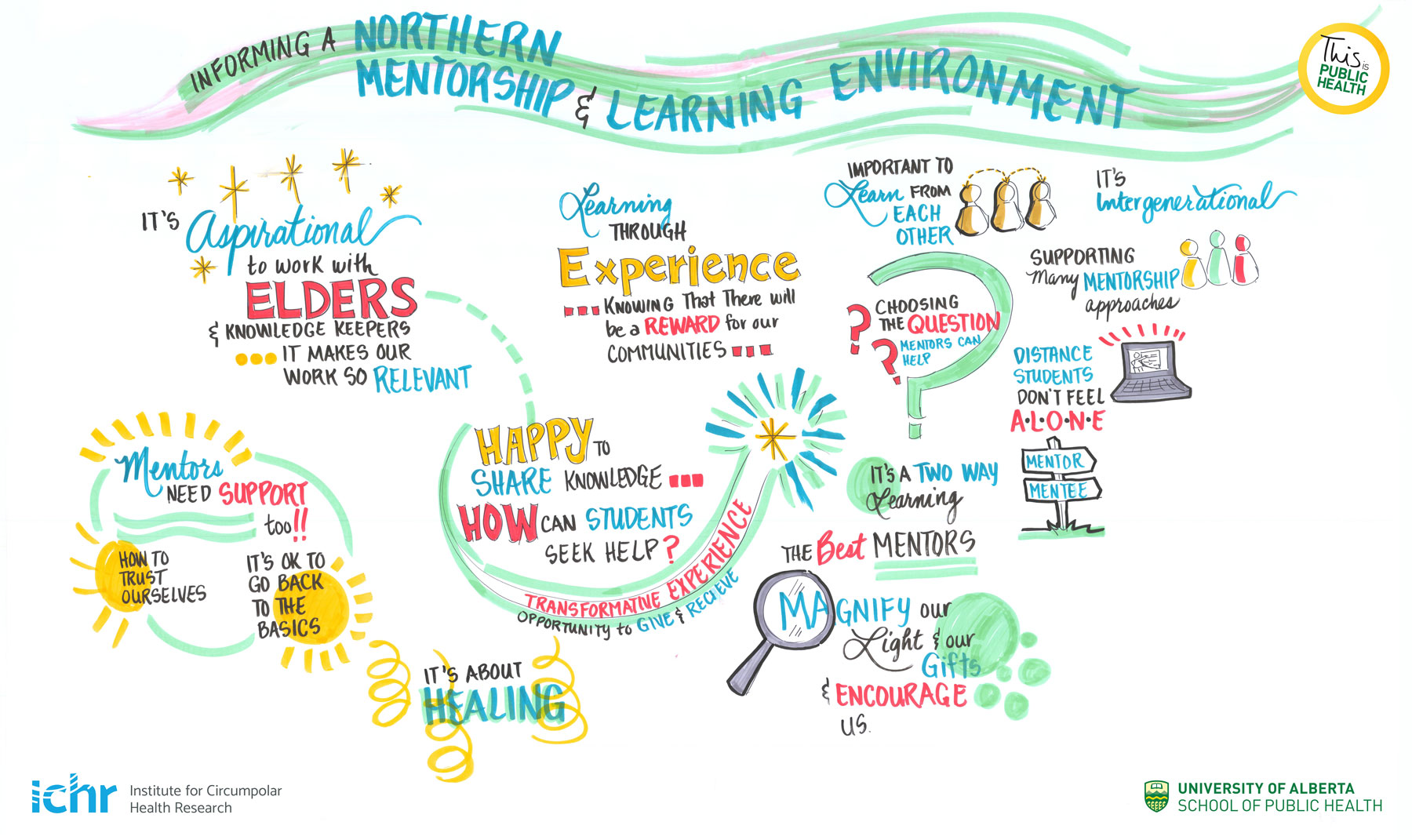Mentorship and Training
Our School's Indigenous elders and knowledge keepers play a key role as cultural mentors to our students. Together, we considered the ideal environment needed for success, identified principles by which we will operate, and co-created a shared vision for strengthening Indigenous research capacity through mentorship and training.
Environment
To strengthen Indigenous research capacity through mentorship and training, certain factors need to be considered:
- being open to new ways of learning
- supporting open and inclusive spaces for knowledge sharing and learning
- finding ways to bring together two ways of knowing
- providing support to mentors
Several principles guide the School's community-engaged research and training:
- being present
- being responsive to community needs
- being connected to communities
- changing our mindset — "Out of our heads, and into our hearts."
- giving time and space to listen to stories
- understanding the history, culture and context
There are key elements in our vision for successful community-engaged mentorship and training for students and Indigenous mentors:
- achieving health equity
- working in the spirit intended in treaties with Canada's Indigenous people
- creating opportunities to learn through experience (e.g., land-based learning)
- pursuing and using (traditional) knowledge
- fostering an environment in which people feel comfortable in opening up
- building hope, mutual respect and lasting relationships
- creating a balance


